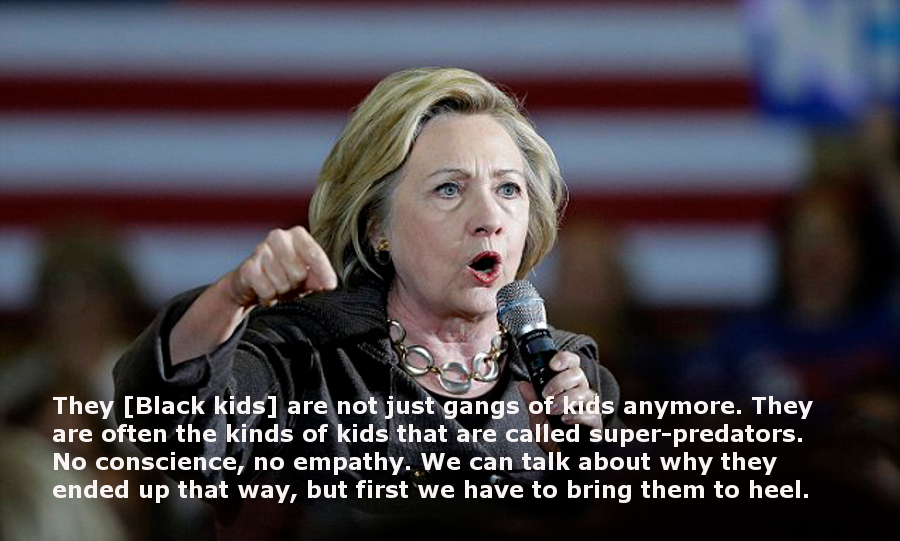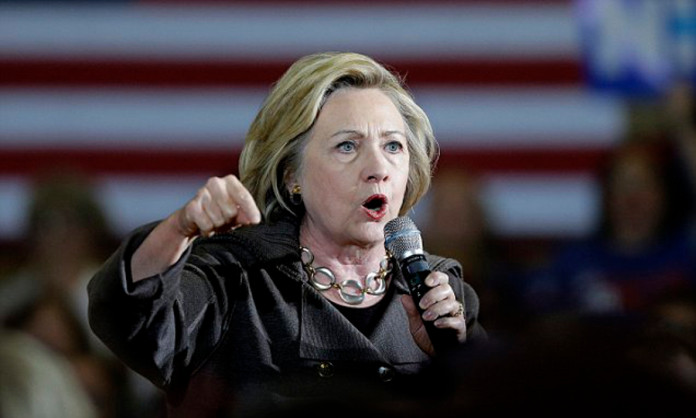ATLANTA, GA, USA — When Bill Clinton left office in 2001, the United States had the highest rate of incarceration in the world. Human Rights Watch reported that in seven states, African Americans constituted more than 80 percent, more than 90 percent in some, of all drug offenders sent to prison, even though they were no more likely than whites to use or sell illegal drugs.
Prison admissions for drug offenses reached a level in 2000 for African Americans more than 26 times the level in 1983 all because of Clinton politics. All of the presidents since 1980 have contributed to mass incarceration, but as Equal Justice Initiative founder Bryan Stevenson recently observed, “President Clinton’s tenure was the worst.”
Some might argue that it’s unfair to judge Hillary Clinton for the policies her husband championed years ago. But Hillary wasn’t picking out china while she was first lady. She bravely broke the mold and redefined that job in ways no woman ever had before. She not only campaigned for Bill; she also wielded power and significant influence once he was elected, lobbying for legislation and other measures.
That record, and her statements from that era, should be scrutinized. In her support for the 1994 crime bill, for example, she used racially coded rhetoric to cast black children as animals:
“They are not just gangs of kids anymore. They are often the kinds of kids that are called super-predators. No conscience, no empathy. We can talk about why they ended up that way, but first we have to bring them to heel.”
Another myth that is often emphasized about the Clinton administration is that although it was overly tough on crime, at least its policies were good for the economy and for black unemployment rates.
This is false. The truth is more troubling. As unemployment rates sank to historically low levels for white Americans in the 1990s, the jobless rate among black men in their 20s who didn’t have a college degree rose to its highest level ever. This increase in joblessness was propelled by the skyrocketing incarceration rate.
Why is this not common knowledge? Because government statistics like poverty and unemployment rates do not include incarcerated people.
Now, ain’t that the pow-pow? The fix is in for the Clintons, and African Americans must better watch out. Look somewhere else, or sit at home and mind your gaddamn business. That’s my call. Harvard sociologist Bruce Western explains:
“Much of the optimism about declines in racial inequality and the power of the US model of economic growth is misplaced once we account for the invisible poor, behind the walls of America’s prisons and jails.”
When Clinton left office in 2001, the true jobless rate for young, non-college-educated black men (including those behind bars) was 42 percent.
To make matters worse, the federal safety net for poor families was torn to shreds by the Clinton administration in its effort to “end welfare as we know it.”
The welfare-reform legislation that he signed—which Hillary Clinton ardently supported then and characterized as a success as recently as 2008—replaced the federal safety net with a block grant to the states, imposed a five-year lifetime limit on welfare assistance, added work requirements, barred undocumented immigrants from licensed professions, and slashed overall public welfare funding by $54 billion.
Experts and pundits disagree about the true impact of welfare reform, but one thing seems clear: Extreme poverty doubled to 1.5 million in the decade and a half after the law was passed. What is extreme poverty
Despite claims that radical changes in crime and welfare policy were driven by a desire to end big government and save taxpayer dollars, the reality is that the Clinton administration didn’t reduce the amount of money devoted to the management of the urban poor; it changed what the funds would be used for.
Billions of dollars were slashed from public-housing and child-welfare budgets and transferred to the mass-incarceration machine. By 1996, the penal budget was twice the amount that had been allocated to food stamps. During Clinton’s tenure, funding for public housing was slashed by $17 billion (a reduction of 61 percent), while funding for corrections was boosted by $19 billion (an increase of 171 percent), according to sociologist Loïc Wacquant “effectively making the construction of prisons the nation’s main housing program for the urban poor.”

All this was contained in a copious treatment of Hillary Clinton by Michelle Alexander in a US news outlet called the Nation. Find a link below.










